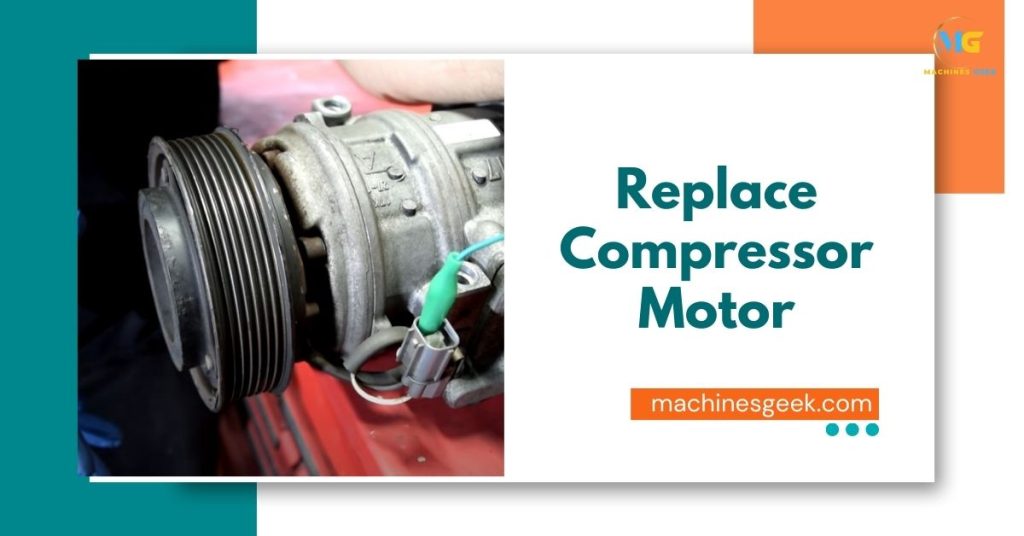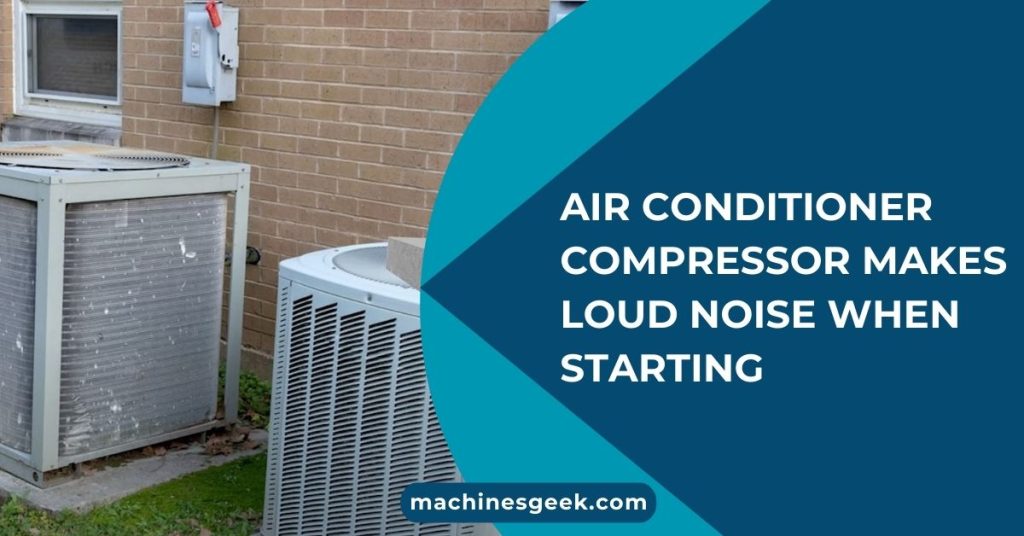If your air conditioner compressor makes a loud noise when starting, it is likely due to a broken compressor, run capacitor or condenser fan motor. These components are essential for the proper functioning of the unit.
It is important to switch off the unit immediately and call an HVAC technician for repairs. Faulty blades, blown fan motors, broken belts, and bad bearings can also contribute to the loud noise. Ensure you get professional assistance to address the issue to prevent further damage to your air conditioner.
Common Causes Of Compressor Noise
This sound is due to an air conditioning mechanical problem. It can come from the outdoor and indoor units. Some of the usual culprits are faulty blades, blown fan motors, broken belts, and bad bearings. Switch off the unit right away and call an HVAC technician for repairs.
Impact Of Compressor Noise On Air Conditioner Performance
When the air conditioner compressor makes a loud noise during startup, it can have several negative effects on the performance of the unit. Firstly, the noise can indicate decreased efficiency.
This means that the compressor is not working at its optimal level, resulting in reduced cooling capacity and slower temperature control. Secondly, the loud noise can lead to increased energy consumption.
As the compressor works harder to overcome any issues, it requires more power to function, leading to higher electricity bills. Lastly, the loud noise on startup can potentially cause damage to other components of the air conditioner.
Vibrations and excessive strain on the system can result in worn-out parts or even system failure. It is important to address compressor noise promptly to ensure the proper functioning and longevity of your air conditioner.
Troubleshooting And Solutions For Compressor Noise
If your air conditioner compressor makes a loud noise when starting, there are a few troubleshooting steps you can take to identify and resolve the issue.
Check Voltage And Wiring
One common cause of compressor noise is low voltage or unsoldered wires. Ensure that the voltage is within the manufacturer’s recommended range and check the wiring connections for any loose or damaged wires. If necessary, consult a professional to repair or replace any faulty wiring.
Replace Compressor Motor

If the compressor motor is found to be faulty, it may need to be replaced. Consult with an HVAC technician for proper diagnosis and replacement of the compressor motor.
Lubricate Bearings
Noise from the compressor can also be caused by dry or worn-out bearings. Lubricate the bearings according to the manufacturer’s instructions to reduce friction and noise.
Repair Or Replace Faulty Blades
Another potential source of noise is faulty blades. Inspect the blades for any damage or wear and have them repaired or replaced as needed to ensure the proper functioning of the compressor.
Can a Loud Air Conditioner Compressor Cause Damage?
Yes, troubleshooting loud AC compressor noise is important as a loud air conditioner compressor can indicate potential damage. High noise levels could be a sign of malfunctioning parts or wear and tear. Regular maintenance and timely repairs can prevent further damage and ensure efficient cooling.
Preventive Maintenance Tips To Reduce Compressor Noise
Regular cleaning and maintenance: One of the most effective ways to reduce compressor noise is by regularly cleaning and maintaining your air conditioner. Dust and debris can accumulate on the compressor, causing it to work harder and produce more noise. Regularly clean the condenser coil, fan blades, and other components to ensure optimal performance and reduce noise levels.
Lubricate moving parts: Proper lubrication is essential for smooth operation and can help reduce noise. Keep an eye on the moving parts of your compressor, such as the bearings and fan motor, and apply lubricant as needed. This will reduce friction and minimize noise caused by metal rubbing against metal.
Check and tighten loose components: Loose components can cause vibrations and generate noise. Regularly inspect your air conditioner for loose screws, bolts, or brackets. Tighten them if necessary to prevent unnecessary noise.
Schedule professional HVAC inspections: Professional inspections and maintenance can identify any potential issues before they become major problems. Regularly schedule inspections with a qualified HVAC technician who can check the compressor, electrical connections, and other components to ensure proper functioning and reduce noise.
Frequently Asked Questions
Why Does My Ac Compressor Make A Loud Noise When It Starts?
When your AC compressor makes a loud noise when it starts, it is likely due to a broken compressor, run capacitor, or condenser fan motor. These components are essential for the proper functioning of your AC unit. It is recommended to switch off the unit and call an HVAC technician for repairs.
Is It Normal For The Ac To Make Noise When Turning On?
It is normal for an AC to make noise when turning on. The noise may include rattling, clicking, and a woosh from the initial air burst. These sounds are normal and should occur every time the unit kicks on. If you hear a loud noise coming from the outside unit, it may indicate a broken compressor, run capacitor, or condenser fan motor.
It is best to call an HVAC technician for repairs.
What Does A Bad Ac Compressor Bearing Sound Like?
A bad AC compressor bearing sounds like a squealing or grinding noise when the fan motor is running. It is caused by the lack of lubrication in the bearings, which leads to metal rubbing against metal. If you experience this noise, it is advisable to contact an HVAC technician for repairs.
Conclusion
If your air conditioner compressor makes a loud noise when starting, it could indicate a problem with the compressor, run capacitor, or condenser fan motor. These components are essential for the proper functioning of your AC unit. It is important to address these issues promptly by calling an HVAC technician to avoid further damage.
Switch off the unit immediately and seek professional repairs for faulty blades, blown fan motors, broken belts, or bad bearings. Don’t let the system keep running in this condition.








